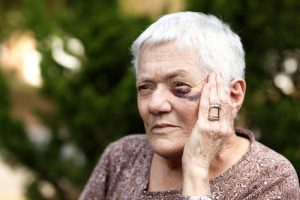 Elder abuse is a prevalent and often unseen problem in the U.S., with approximately one in 10 Americans aged 60+ have experienced some form of abuse. United Way of Central Alabama’s Area Agency on Aging is part of a network of agencies across the state that provides resources and support for Alabama seniors, especially in cases of negligence and mistreatment.
Elder abuse is a prevalent and often unseen problem in the U.S., with approximately one in 10 Americans aged 60+ have experienced some form of abuse. United Way of Central Alabama’s Area Agency on Aging is part of a network of agencies across the state that provides resources and support for Alabama seniors, especially in cases of negligence and mistreatment.
Elder abuse refers to intentional or negligent acts by a caregiver or trusted the individual that causes harm to a vulnerable elder, including physical or sexual abuse, neglect, financial exploitation, abandonment and psychological or emotional abuse. One study estimated that only about one in 14 cases of abuse are reported to authorities. The most frequent victims of elder abuse are women and seniors 80 and older, and the victim’s family members are the most common source of mistreatment, with adult children and spouses making up two-thirds of perpetrators. The most common type of abuse is financial, and senior citizens in the U.S. lose an estimated $2.6 billion each year due to financial exploitation.
Many victims are reluctant to report their abuse because they feel ashamed or embarrassed, especially if a family member is an abuser. They might also be unable to speak out due to issues like dementia or other impairments, or fear that they might not be believed if they do.
The Area Agency on Aging works to provide seniors the care and dignity they deserve, especially when it comes to elder abuse. The agency’s Long Term Care Ombudsman Program provides advocates for residents of long-term senior care facilities across the state. They work with the managers of these facilities as well as the government and the residents themselves to ensure the health, safety and rights of all Alabamians in long-term care facilities. They investigate and resolve complaints, visit and evaluate services, educate the public about residents’ rights and act as a mediator between residents, family members and staff.
Remaining vigilant of the possibility of abuse is important. The type of abuse can take different forms, including emotional abuse through humiliation, isolation, and intimidation; physical abuse including assaults such as hitting or shoving but also including inappropriate use of drugs or restraints; financial exploitation through the unauthorized use of a senior’s funds or property and even sexual abuse. The National Center on Elder Abuse recommends that people who are close to seniors keep in contact with their older friends, neighbors, and relatives frequently.
If you know a senior who you believe to be in a life-threatening situation, call 9-1-1. If you need to get in touch with an Ombudsman or would like to learn about more resources that might be available, call 1-800-AGELINE (800-243-5463), which is a statewide help line for seniors and those living with a disability, as well as their caregivers.